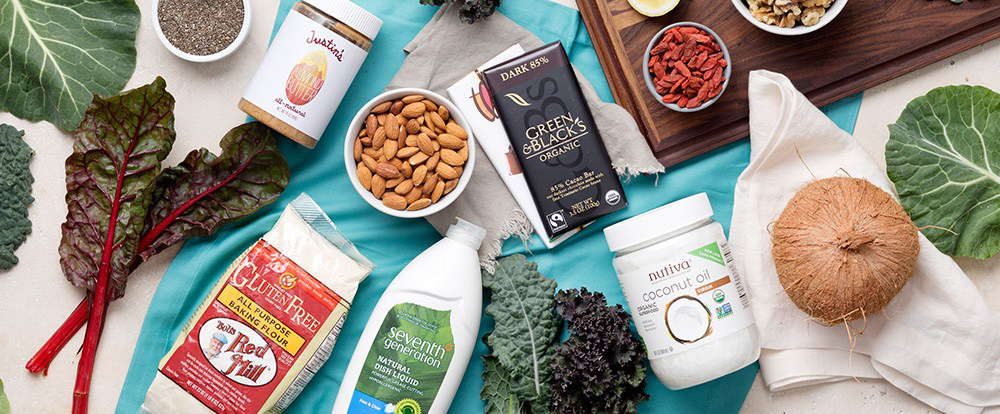Coconut Oil Herpes Cold Sore Remedy
If you are living with a herpes simplex virus, you’ve probably made some changes to your diet to prevent or manage unpleasant cold sores or outbreaks. Now, coconut oil is becoming a subject of interest for those looking to manage outbreaks and contagiousness of herpes simplex viruses. With the proven antiviral and anti-bacterial properties of the oil’s unique fatty acids, it’s easy to see why.
Coconut Oil Kills Viruses
Coconut oil’s lauric acid is proven to have antiviral effects. The body converts it to monolaurin, which destroys the coating around lipid-enclosed viruses. Specifically, it has been shown to disintegrate the herpes simplex virus in in vitro testing. ¹
Similarly, it has even been shown to work on HIV, and since they are both lipid-enclosed viruses, those test findings can shed some light on how well it works for the herpes virus. Coconut oil reduced the viral load in about half of HIV-positive test subjects within 3-6 months. ² (Viral load is the amount of virus in an involved body fluid.) The test was done using 3.4 tablespoons of unrefined coconut oil for one group, and monolaurin supplements for another. Both worked for about half of each group. Since coconut oil has also been proven to kill herpes in vitro, I would surmise that it would have a similar result for HSV-1 and HSV-2 positive subjects (Please note, I am not a doctor).
No Arginine in Coconut Oil
As promising as this is, some people still wonder whether coconut oil is really helpful for herpes because of an alleged high content of the amino acid arginine. It’s known that foods high in arginine can aggravate herpes symptoms if they are not balanced with more lysine-rich foods. However, this rumor about coconut oil is simply not true.
Some online sources say coconut oil has an amino acid that nixes its effectiveness as a herpes remedy, but this is false. Oils are pure fat, and don’t contain amino acids. Coconut meat contains a high amount of arginine – five times its lysine ratio. However, the oil extracted from the coconut is pure fat and doesn’t contain the meat’s protein. I checked the nutritional information on the USDA Web site, and found nothing in coconut oil’s amino acid profile.

Nutrient Data for Coconut Oil. Since oil is fat, there are no proteins, and therefore no amino acids like arginine or lysine. Source: USDA Nutrient Database.³ Just to confirm this, I e-mailed a representative of the popular coconut-oil supplier Nutiva, and they told me the same:
Amino acids are found in protein, not in fat. While coconut meat contains amino acids, the coconut oil does not.
If you are still in doubt, remember that consuming arginine is fine so long as you eat or supplement more lysine. Either add more lysine to your diet, or cut down on arginine elsewhere. Unlike arginine, lysine is an essential amino acid, meaning it must be consumed because the body can’t manufacture it. So get some lysine supplements (like Source Naturals L-Lysine Tablets) or read up on some lysine-rich foods — like eggs, dairy, chicken, avocados, pears, and apples — and start incorporating them!
Coconut Oil vs. Monolaurin Supplements
Monolaurin is the helpful substance your body makes from the lauric acid in coconut oil. Both coconut oil by itself and monolaurin supplements by themselves have been shown to reduce viral loads in subjects. In a trial that showed improvement in HIV-positive patients, the dosage was about 3.4 tablespoons of coconut oil per day, which is generally safe depending on your weight. Still, you should gauge your body’s response to coconut oil and adjust accordingly. If this is too much for you, consider taking a supplement (Lauricidin Pure Monolaurin is a good monolaurin supplement).
Coconut oil and monolaurin supplements have both been shown to reduce viral loads in test subjects.
Many health food and vitamin stores sell monolaurin supplements online. Lauricidin Pure Monolaurin is a high-quality monolaurin product. Another to try is Ecological Formulas Monolaurin, which is highly rated on Amazon.
By the way, while monolaurin is the strongest antiviral coming from coconut oil use, the lauric acid in it has microbial properties even without conversion. Plus, there are other antimicrobial, virucidal substances in coconut oil: capric acid, caprylic acid, and myristic acid.
Topical Use of Coconut Oil for Outbreaks
Coconut oil can be applied topically/externally in treating skin conditions like eczema, psoriasis, and even acne. I’m unsure why it seems to work topically on oral herpes cold sores and genital herpes blisters, but anecdotal evidence around the Web suggests its external use does speed up healing and shortens the duration of an outbreak. To get the healing benefits, make sure you use extra-virgin, unrefined coconut oil (Nutiva Organic Extra Virgin Coconut Oil). Or, you can use topical monolaurin/lauricidin (Epi-Shield Topical Lauricidin).
In the meantime, you can educate yourself about common herpes outbreak triggers and avoid the culprits.
Conclusion
In summary, what you do is up to you (and your healthcare provider of choice), and what works for one may not for another. It’s not a herpes cure, but for many, the coconut oil herpes remedy gets rid of their symptoms. Adding unrefined, virgin coconut oil to their diet has dramatically reduced their outbreaks of genital herpes and oral herpes simplex viruses. Consult with your doctor before trying anything, experiment, and best of luck!
Some other natural herpes remedies you can use in conjunction with a coconut oil herpes treatment are:
- Reduce your stress levels
- Maintain a healthy diet and consume more lysine than arginine
- Consider your pH level, as alkaline environments can prevent symptoms and outbreaks
- Get plenty of vitamins A, C and mineral zinc
Sources
[1] (Hierholzer, JC and Kabara, JJ. “In vitro effects of Monolaurin compounds on enveloped RNA and DNA viruses.” J. Food Safety 1982; 4:1.)
[2] Tayag E, Dayrit CS. Results analysis of clinical HIV trial with monoglycerides [presentation]. The 37th Cocotech Meeting, Chennai, India, July 25, 2000
[3] USDA Nutrient Database for Standard Reference, Release 24. Nutrient Data for 04047, Oil, coconut. http://ndb.nal.usda.gov/ndb/foods/show/607?fg=&man=&lfacet=&count=&max=&sort=&qlookup=&offset=&format=Full&new=








